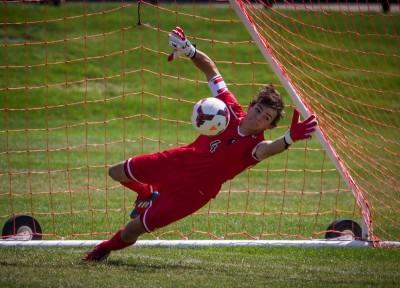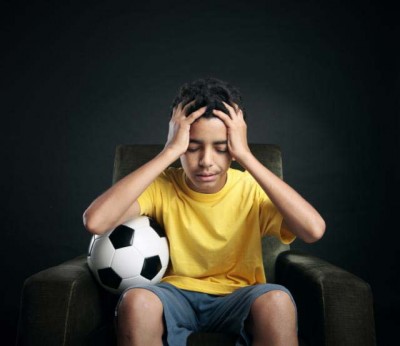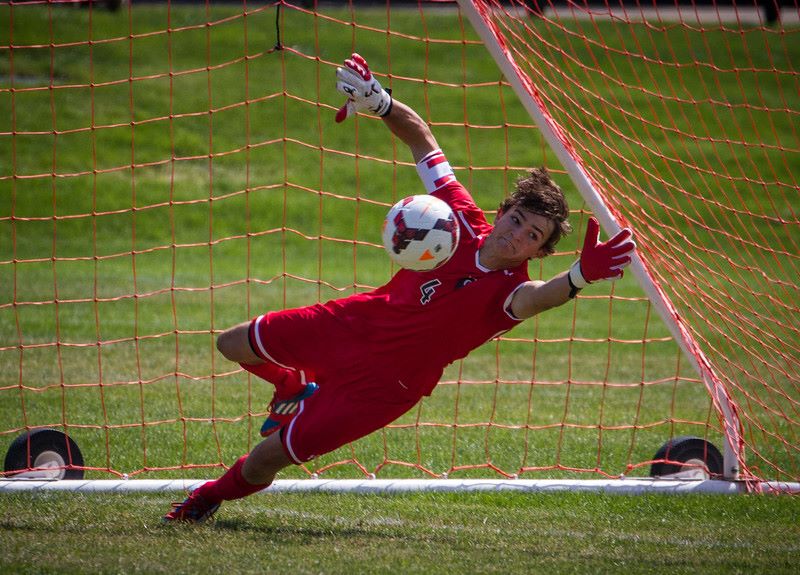Zuriel Lozano
Goalkeeper mental toughness
Today there is a number of goalkeeper programs who spend time doing all kinds of goalkeeping drills to improve their technical aspects but almost nobody covers the most important aspect of a goalkeeper at the youth level which is the MENTAL TOUGHNESS.
 I live in Denver, Colorado. Here there a number of soccer goalie camps done by amateur youth clubs such as Real Colorado, Colorado Rush Soccer club, CORE goalkeeping & various clubs under the Colorado State Youth Soccer. I have seen their training with a massive number of goalkeepers and many coaches. Their technical training will always be great since that’s as much as they will be able to cover given the large number of goalkeepers they have to work with, but because they have these big numbers of goalkeepers, they can’t possibly take time to sit down and provide goalkeepers with help in the area of mental toughness or goalkeeper psychology.
I live in Denver, Colorado. Here there a number of soccer goalie camps done by amateur youth clubs such as Real Colorado, Colorado Rush Soccer club, CORE goalkeeping & various clubs under the Colorado State Youth Soccer. I have seen their training with a massive number of goalkeepers and many coaches. Their technical training will always be great since that’s as much as they will be able to cover given the large number of goalkeepers they have to work with, but because they have these big numbers of goalkeepers, they can’t possibly take time to sit down and provide goalkeepers with help in the area of mental toughness or goalkeeper psychology.
Mental toughness training requires more than just talking about it in THEORY. This is the biggest issue with mental training which is many coaches usually repeat something they saw on youtube or they read from a “famous soccer coach” and now they want to apply it with youth club kids who care nothing about it.
Most goalkeeper programs are focused only on executing the correct technique. However, many goalkeepers lack confidence during games despite of how great their techniques are. MENTAL TOUGHNESS is about performing extremely well in your WORST DAY of your life. No matter how terrible things are you are still able to get the job done correctly.
Here are few signs of goalkeepers struggling in their mental game
- Keepers that when they get scored on, they take it so personal to a point that mistakes after mistakes keep happening. They just can’t focus after a goal.
- Goalkeepers who do not seem comfortable in the goal. They just cant get a good game going.
- Goalkeepers who have issues with physical contact like breakaways, hitting the ground from a top corner dive, getting hit by the ball, or they are simply scared of getting hurt. These will show in the game.
- Goalkeepers who make BIG/GREAT plays but give up EASY GOALS.
This happens often to many young goalkeepers and as they get into tougher competitions this could get worse if not taken care of properly.
The goalkeeper must be trained to solve problems
And goalkeeper coaches must have a clear understanding on how to set up their programs to allow an effective mental training.
Unfortunately, there are so many programs that would rather focus more on older/ better goalkeepers and not spend so much time with younger keepers. This normally has a negative effect on MANY goalkeepers as they get older. However, the MENTAL aspect of a goalkeeper requires quality time and strategic individual training programs. But more important, the goalkeeper MUST be willing to do this type of training.
Here are few soccer goalie tips to take you on the correct path:
- Start by finding goalkeeper camps that will have personalized programs. I don’t mean, PRIVATE SESSIONS unless you can afford it. But programs that goes beyond basic goalie drills.
- Find programs that are creative in terms of goalkeeper drills and intensity.
- Be cautious of camps that continue to do the same training for a long time.
- Having too many goalkeepers per group will be extremely challenging for one coach to handle. As result, the quality of training will be terrible.
- Last, find a goalkeeper program with coaches trained in the area of mental training. Someone who be willing to go beyond just books and certifications and really create a program that will help you be mentally strong.
More to explorer
Soccer parents, are you exhausted?
You seem to be living your life according to youth club soccer. An intense emotional roller coaster is experienced by parents throughout the United States as their children progress through their youth soccer careers. You may not think so, but being a youth soccer parent is exhausting emotionally and physically. Many parents have developed serious
Who stresses more during games parents or athletes?
Nervous soccer parents

Understanding Athlete Burnout
Athlete burnout is defined by Sport Psychologists as: physical/emotional exhaustion, sport devaluation, reduced athletic performance and accomplishment”. Burnout can happen at a very young age. I have personally met many 12-year-olds who show severe signs of burnout. Unfortunately, a number of parents refuse to believe their children are too young to burn out, insisting that what their children require is
